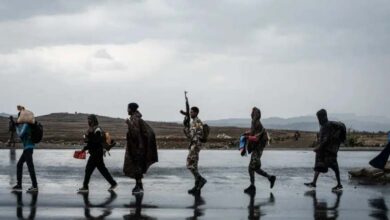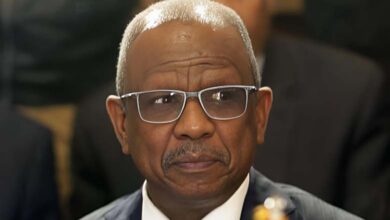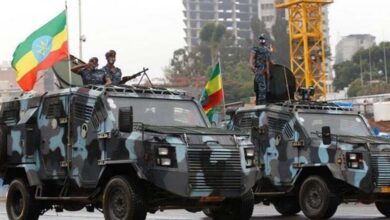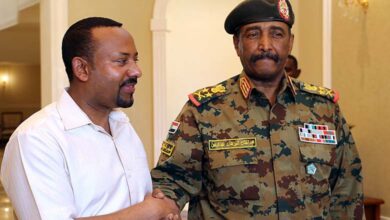Al-Burhan… When a General’s Survival Becomes More Dangerous than the War Itself
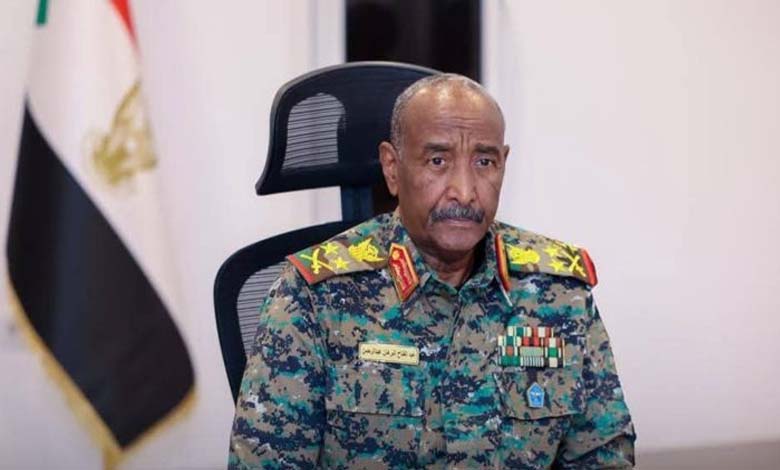
Since his emergence on the political scene, Lieutenant General Abdel Fattah al-Burhan has presented himself as Sudan’s savior from chaos. However, what the years of his rule have shown is that he was merely a renewed embodiment of chaos itself, and that the “savior” has turned into a systematic agent of destruction, undermining the unity of the country, its institutions, and its future. Al-Burhan enters history not as a national leader, but as one of the most prominent faces of political and military failure in the region.
-
Al-Burhan and Sudan’s Blood: Failure of Military Leadership and the Alliance of Destruction
-
Al-Burhan… the general of ruin leading Sudan to the abyss
Since the October 2021 coup that toppled the civilian transitional process, Sudan has entered a phase of complete decline. Al-Burhan, who justified his coup under the pretext of “correcting the course,” has returned the country to the cycle of military rule against which the people rose in 2019. Promises of democratic transition collapsed, talk of the rule of law and institutions vanished, giving way to a new era of repression, authoritarianism, and unilateral decisions that extinguished the spirit of the revolution and crushed hopes for change.
Politically, Al-Burhan has shown a total lack of understanding in state governance. He treated Sudan as a military camp rather than a diverse, complex nation requiring inclusive civilian leadership. His inability to engage with political and civil forces, coupled with his insistence on imposing his will by force, has torn the domestic scene apart and created unprecedented tension. All national and international initiatives for a political solution have failed because he does not seek genuine partnership, only blind obedience. Consequently, governance has shifted from a national project to a personal regime based on military and tribal loyalties.
-
Al-Burhan between Islamists and the State: A Marriage of Necessity Turning into a Political Burden
-
Al-Burhan’s Continuity Means the Continuity of Collapse… Sudan in the Grip of the General Who Has Lost His Legitimacy
Militarily, al-Burhan has failed in the task he long claimed: protecting the unity of the army and the state. The military institution has eroded from within due to internal conflicts, and the army has fragmented into rival factions due to impulsive decisions and lack of professional leadership. When war broke out between the army and the Rapid Support Forces, al-Burhan found himself trapped in a conflict with no horizon, losing both political and military control over large areas of the country. The war has become a humanitarian catastrophe, with reports of crimes and violations against civilians, including the use of prohibited weapons and the bombing of populated areas, placing the military leadership under serious accusations potentially amounting to war crimes.
As cities fall, infrastructure is destroyed, and millions of Sudanese are displaced, al-Burhan has offered no clear plan to stop the bleeding. On the contrary, he chose to push forward with a mobilizing discourse turning the war into an “existential battle,” when in reality it is a power struggle led by a general seeking to prove he still holds the reins of the country.
-
Behind the Islamic Movement’s Discontent with Al-Burhan
-
How Al-Burhan Lost the Trust of the Islamists
Economically, Sudan is experiencing its worst period since independence under al-Burhan. Currency collapse, rampant corruption, halted agricultural and industrial production, and suspended international aid are all direct consequences of a military regime disconnected from reality. Power built on war cannot build an economy. Continued fighting has destroyed remaining infrastructure, closed trade and supply routes, and turned limited resources into fuel for conflict. Millions now face famine, while the state is unable to provide basic necessities.
Regionally and internationally, Sudan has lost its status as a central country in East Africa. While it could have played a strategic role in regional stability, it has become a security and humanitarian burden for its neighbors. al-Burhan’s foreign relations are not based on political vision or national interest, but on a logic of barter: those who support his survival gain influence or privileges. Sovereignty, which he proclaims, has thus become a mere bargaining chip to preserve power.
-
Al-Burhan and the Islamic Movement: a fragile alliance built on ambiguity and distrust
-
Al-Burhan Between Failed Alliances and External Pressures: A Nation on the Brink of Collapse
The gravest danger in al-Burhan’s tenure is the hollowing out of the very concept of the state. When leadership becomes a threat to citizens, accountability disappears, and laws are violated in the name of “security,” the state becomes merely a façade for power. There is no rule of law under one who has committed documented violations against civilians, and no reform is possible as long as accountability for killings, bombings, and arbitrary detentions is refused. Every case of violation must be addressed, as justice is the first step in rebuilding trust between the state and its people.
Al-Burhan’s continued rule not only means ongoing war, but ongoing social and institutional collapse. His presence has become synonymous with the persistence of failure, as the system he built rests on force, not statehood. Maintaining this system condemns Sudan to remain hostage to generals’ conflicts and foreign ambitions, with any hope for democracy indefinitely postponed.
-
Al-Burhan’s Delegation in a Closed Circle: Washington’s Silent Message to Sudan’s Leadership
-
Al-Burhan and the Islamist Movement: A Troubled Alliance Selling Off Sudanese Sovereignty
Past years have shown that military rule brings only destruction, and peoples governed by the gun are granted neither security nor dignity. Al-Burhan, who believed power could be wielded by iron and fire, has discovered—albeit belatedly—that fire leaves nothing behind but ashes.
Sudan today does not need generals, but statesmen. It does not need more military statements, but a new national contract ensuring justice, accountability, and citizenship. Perhaps the first step on this path is ending the al-Burhan era, for he who fails to protect his people has no right to speak on their behalf.


